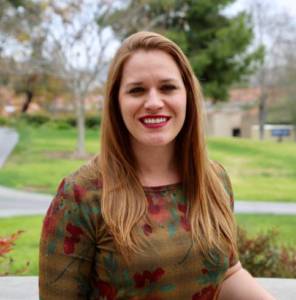(Part 2)
What were you taught about your humanity?
As we continue the conversation on codependency, I invite you to consider the below categories from Pia Mellody’s book, Facing Codependence, and notice your internal response (thoughts, feelings, and bodily sensations). I recommend going slowly over the words to help leave space to consider your reaction.
- Valuable – born worthy of honor, respect, dignity, and delight; bearing the glory of God’s image
- Vulnerable – born susceptible to hurt or harm; difficulty protecting oneself
- Imperfect – born prone to mistakes and learning through trial and error
- Dependent – born in need and with desire
- Immature – born with a developmental process that unfolds over time
What is your response to these qualities of being a human being? Not what you imagine it should be, but viscerally, what is it like to ascribe each quality to yourself as a characteristic of you?
Each quality is an integral part of developing the characteristics of mature adulthood. Without embracing these qualities as a beautiful part of God’s design, it is impossible to be complete, lacking in nothing (James 1:4). And yet, many of us might have conflicting thoughts and feelings regarding these qualities.
Why is that?
Codependency develops when shame or terror have been developed through interactions with natural components of our childhood. Oftentimes, our parents have passed down the approach modeled by their own parents, who passed down the approach modeled by their parents (Exodus 34:7).
Many parents have the desire to pursue goodness, and have successfully excelled in certain areas. However, this assault on our humanity often flies under the radar. Due to its deceptive and pervasive nature, it continues to be passed down generationally. This modeled approach to dealing with our humanity has become so commonplace that it has permeated the fabric of many of our faith traditions, resulting in a hesitation to explore it more deeply.
What should you do when you notice these learned reactions peeking through?
Your reaction to the above realities may indicate how you were taught to interact with your humanity. The following prompts may help you begin to identify the modeling you received when the above qualities are present in yourself or others.
- Notice your tone when you or others misstep.
- Notice your response to being celebrated, complimented, or honored.
- Notice your internal conversation around areas slow to change in you or others.
- Notice your comfort level with revealing thoughts, feelings, opinions, and choices.
- Notice the way you react to hurting others or being hurt.
- Notice how you react to being in significant need or respond to need in others.
- Notice your response to desire, wants, and enjoyment.
As you pay attention to the above areas, are shame, guilt, terror, or condemnation present in your responses? Do you deal with yourself harshly? Demand perfection? Do you berate and cajole yourself toward performing more appropriately? Dismiss honor and delight when extended to you? Are you creating room for desire and enjoyment in your life?
If you notice discomfort in these areas, you may have developed within a context that taught you to attack the very avenues God utilizes to cultivate our capacity to love Him and love others as ourselves (Mark 12:30-31).
What do I do now?
The next step after noticing the effects of codependency is to pursue change. This is a beautiful pursuit, and I would recommend it. For the record, the healing is more of a process than a destination, which can be frustrating and confusing. But, if we are willing to lay down the weapons we have become predisposed to, we can engage with curiosity and compassion in the qualities of humanity. This cease-fire allows the development process to resume and to bear the fruit God designed as they mature. It allows us to become a people who have cultivated faith, hope, and love amidst the valley of the shadow of death (1 Corinthians 13; Psalms 23:4). It allows us to become a people who act justly, love mercy, and walk humbly with ourselves and those around us (Micah 6:8).
This is just a glimpse of the benefits of allowing our developmental process to continue. In future articles, we will continue to flesh out how to notice disruptions to this process. Over time, small shifts will make big impacts on our lives.

Written by: Becca Cline, LPC
Online Counseling Team
becca@restorationcounselingatl.com, ext. 156
Becca works with male and female clients who are 13 years or older. She sees couples, families, and individuals. She has worked with clients dealing with various issues, including depression, anxiety, addiction, grief/loss, trauma, abuse, spiritual issues, sexuality, family-of-origin issues, codependency, anger, and interpersonal and relationship issues.

